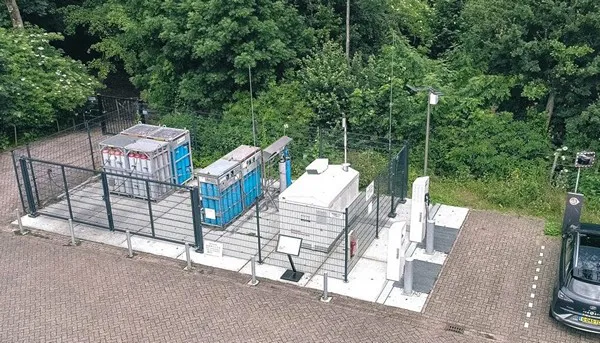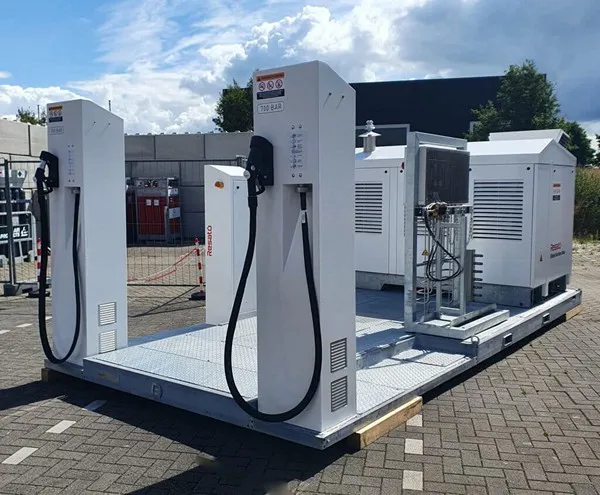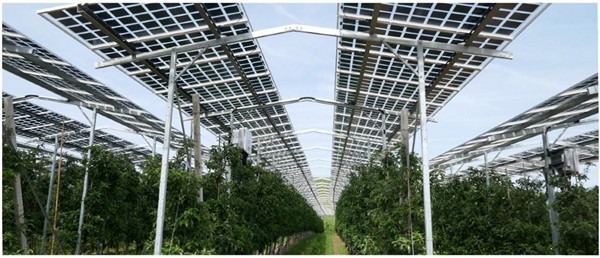The frequent damage caused to agriculture, housing and the environment as a result of climate change is prompting all European governments to accelerate the introduction of renewable energy and green fuels, that is, with no CO2 emissions.
In addition to funding agri-voltaic systems in agriculture, Europe is in fact encouraging the introduction of green hydrogen as a fuel for vehicle power, home heating, and industrial use. Unlike other energy sources, hydrogen is a gas that produces only water and does not release carbon dioxide, meaning that hydrogen-powered cars entirely zero out CO2 emissions, as well as other harmful gases. This eco-friendly fuel also seems easy to store and transport, even in large quantities. All countries can source hydrogen themselves, without having to rely on outside suppliers, thus ensuring full energy autonomy that will last for generations.

Green hydrogen is extracted from renewable energy and promises to make the best contribution to decarbonization.
In this regard, Angelo Amato of the Oliva Service company argues that power generation requirements have now fully involved the agricultural field, which sees an unprecedented opportunity for the integration of income. “Farms can become an important driver in the integration of non-polluting energy needs and agricultural production. The development of our advanced agrivoltaic solutions, with semi-transparent solar panels and the large solar energy outputs that will be achieved in agricultural fields, opens the way for producing green hydrogen on the farm, which would then become an ecological oasis for clean energy and healthy food production.”
 Cylinder charging station
Cylinder charging station
The innovative system devised by Oliva Service would allow several advantages to farms, such as achieving energetic autonomy and thus self-production of green fuel for their vehicles, obtaining an important supplementary income through the storage and sale of energy and green hydrogen, as well as the possibility to pursue cultivation and improve agricultural production and yields by protecting plants from adverse weather events, such as sudden hail, wind, heavy rain and scorching sun.
“In addition to our advanced agrivoltaics,” continued Amato, “we are introducing innovative new machinery to be able to create a proper green hydrogen distributor on the farm. This will be an additional source of supplementary income for the farm as its usage of hydrogen as a fuel increases. The current price of hydrogen to the public is already cheaper than that of gasoline and diesel, namely €13.7 per kg that covers about 130 km, compared to the cost of gasoline and diesel of €15 to cover the same distance. By allocating, for example, 100 kw of energy power produced by our agrivoltaic system for the production of green hydrogen, we can achieve annual revenues from producing hydrogen of up to €198,000 (before any excise taxes are applied). The water consumption required for hydrogen production is low, with about 9 liters of water for every kg of hydrogen produced.”
 Charging station
Charging station
“According to the National Hydrogen Strategy, investments of up to 10 billion euros are foreseen in Italy in the hydrogen supply chain, involving production (€5-7 billion), distribution and consumption facilities (€2-3 billion) and research and development of technologies (about €1 billion). Many countries are already experimenting the use of hydrogen in public transport, but even in Italy, some regions such as Trentino Alto Adige and Apulia, are already implementing so-called hydrogen valleys,” says Amato.

“There are already numerous solutions in the automotive field that allow diesel engines to be converted to hydrogen bi-fuel, and many new machines are also being produced in the agricultural, railway, marine, industrial vehicles and hydrogen-powered buses. In the same way, there are already several hydrogen heating boiler solutions for homes and commercial and industrial facilities. As a fuel source, the energy efficiency of the hydrogen is two to three times higher than that of conventional engines, which means you can travel more with less fuel.”
The company Oliva Service explained that, in addition to the possibility of recovering and storing rainwater with advanced agri-voltaic systems, it is already gearing up to supply small and large seawater desalination plants in order to provide the water quantities needed for green hydrogen production, on large agri-voltaic systems, without having to take it away from agricultural and civil needs.
Oliva Service will exhibit at the Intersolar fair in Munich, scheduled for 14-16 June 2023. Hall A1, booths 510 and 610.
Article Credits: Fresh Plaza

Pingback: 16-yr-old Ludhiana teen to deliver keynote address at edtech UK - SLSV - A global media & CSR consultancy network